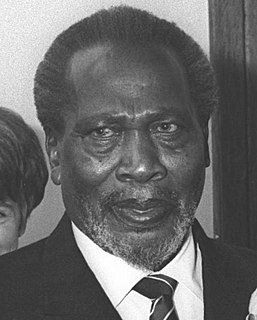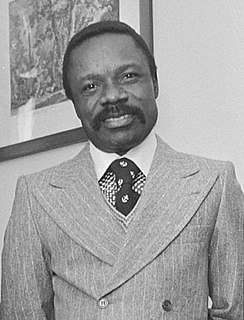A Quote by Chinua Achebe
I feel that the English language will be able to carry the weight of my African experience. But it will have to be a new English, still in full communion with its ancestral home but altered to suit new African surroundings.
Related Quotes
The price a world language must be prepared to pay is submission to many different kinds of use. The African writer should aim to use English in a way that brings out his message best without altering the language to the extent that its value as a medium of international exchange will be lost. He should aim at fashioning out an English which is at once universal and able to carry his peculiar experience.
So in Jamaica it is the aim of everybody to talk English, act English and look English. And that last specification is where the greatest difficulties arise. It is not so difficult to put a coat of European culture over African culture, but it is next to impossible to lay a European face over an African face in the same generation.
You get another person who operates only in an African language and there are many persons who operate only in African languages; he or she is excluded from all the goodies that come with English. And even in terms of justice, law codes, the legal system. A person who does not know English in Africa is excluded from that system because he can only operate through acts of translation.
We do not for example say that the person has a perfect knowledge of some language L similar to English but still different from it. What we say is that the child or foreigner has a 'partial knowledge of English' or is 'on his or her way' towards acquiring knowledge of English, and if they reach this goal, they will then know English.
We know from our recent history that English did not come to replace U.S. Indian languages merely because English sounded musical to Indians' ears. Instead, the replacement entailed English-speaking immigrants' killing most Indians by war, murder, and introduced diseases, and the surviving Indians' being pressured into adopting English, the new majority language.
James Joyce's English was based on the rhythm of the Irish language. He wrote things that shocked English language speakers but he was thinking in Gaelic. I've sung songs that if they were in English, would have been banned too. The psyche of the Irish language is completely different to the English-speaking world.
Malcolm Bradbury made the point, and I don't know whether it's a valid one or not, that the real English at the moment is not the English spoken in England or in America or even in Canada or Australia or New Zealand. The real English is the English which is a second language, so that it's rather like Latin in the days of the Roman Empire when people had their own languages, but had Latin in order to communicate.




































